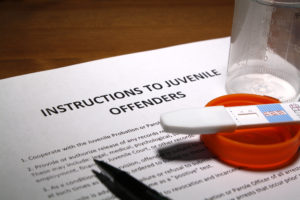While the adult criminal justice system is designed to punish offenders, the juvenile system is, in theory, supposed to help rehabilitate youth. There are two main ways that a youth can be punished if they are found guilty of a juvenile crime: Incarceration and non-incarceration options. Keep reading to find out more about what they are. Then contact Law Office of Michael L. Fell at (949) 585-9055 to request a free legal consultation with a criminal defense attorney.
Juvenile Incarceration Options
Once a juvenile has been convicted, the court’s punishment may include incarceration. However, this does not mean they are going to go to jail and prison the way an adult offender would. There are actually many different incarceration options for juvenile offenders including:
- Home confinement. Otherwise known as house arrest, the judge can require that the minor stay at home with very specific exceptions, such as going to school, work, or counseling.
- Placement in another home. The judge may require that the juvenile live in a group home, a foster home, or with a relative.
- Juvenile hall. It is possible that the judge could send the juvenile to a juvenile detention facility, also known as juvenile hall. These are facilities designed only for short-term stays.
- Probation after juvenile hall. When a judge sends a juvenile to juvenile hall, they may allow them to come home after a few months on probation.
- Secured facilities. While juvenile halls are designed for short-term stays, these facilities, which are often referred to as camps, are designed for stays of months or even years.
- Adult prison or jail. It is possible that the judge will send a juvenile to an adult jail or prison.
- Blended sentence. If a juvenile is close to the age of majority, the judge may send them initially to a juvenile facility and then require that they are transferred to an adult facility when they reach the age of majority.
Juvenile Punishment Options That Do Not Involve Incarceration
Many juvenile cases do not require incarceration, especially if it is a first offense. Some of the potential punishments that do not involve incarceration include:
- Verbal warning. The judge may simple warn the juvenile not to commit the crime again.
- Fine. The juvenile may be responsible for paying a fine to the state or to the victim.
- Counseling. This is often a portion of punishment for a variety of crimes.
- Community service. The juvenile may need to work a specific number of hours in their community.
- Electronic monitoring. This can be done with a wrist or ankle bracelet that verifies the juvenile’s location.
- Probation. The judge may require that the juvenile is monitored on probation.
If you or your child has been charged with a juvenile crime, whether a drug crime, a violent crime, a school crime, or something else entirely, contact Law Office of Michael L. Fell at (949) 585-9055 now for a free legal consultation.


